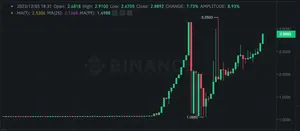After tracing the attacker's attempts to launder the money through Tornado Cash and then obfuscate that it had come from the mixing service (something that raises flags at some exchanges), zachxbt observed the funds go to a broker of Magic: The Gathering based in the United States. Altogether, the hacker appeared to be spending millions on starter decks, alpha sets, and sealed boxes — often overpaying by 5-10%. These items routinely sell for hundreds or thousands of dollars.
The thief is probably a creative money launderer rather than an massive MTG fan, and is probably reselling the cards to further obscure the source of the money. Then again, MTG is more than a little addictive.








